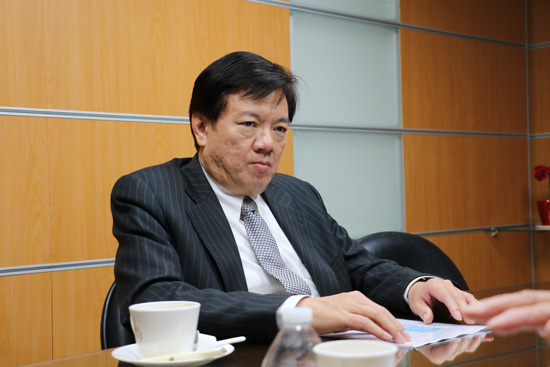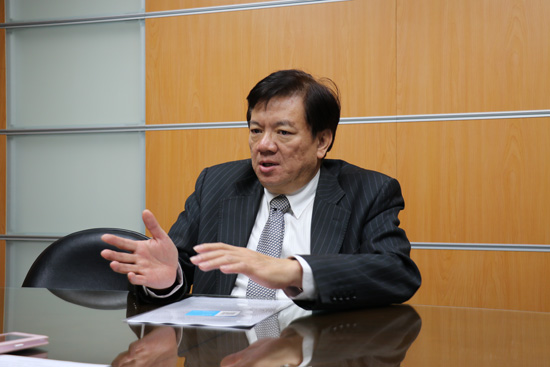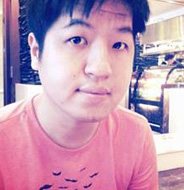In the first year of his term, Justin Wu, chair of Taiwan Patent Attorneys Association (TWPAA), spent his time both promoting Taiwan’s patent system overseas and inviting in-house patent professionals working in industry into the association. In his view, the core problem with Taiwan’s patent system is not only the decline in quantity but also the fall in quality. Reversing this state of affairs, he suggests, relies on the work of patent professionals.
“I’ve been three times to Germany, another three times to Japan, and three or four times to China […],” since his inauguration, Justin Wu has visited his counterparts in other countries to promote Taiwan’s patent system more frequently than any other TWPPA member. “You know what? They are all very interested in Taiwan, and are very willing to apply for Taiwanese patents,” said Wu.
In Wu’s opinion, the year-on-year decline of Taiwan’s patent applications should stop in the coming two years. It’s not difficult to maintain this level.” However, he also said that this doesn’t necessarily mean the application number will rebound. “There is still a long way to go.”

Patent-related Professionals Should Be More Proactive
As an experienced patent attorney, Wu suggests that the decline is only an outcome of a bigger problem, and that the solution is not to ask tech companies to increase their patent applications. “In major economies like the US, Japan, or China patent applications have been increasing year in year out, while Taiwan seems to be the only place seeing a decline. This implies that there is more than one dimension to the problem.”
He suggested that, for example, the low damages awards and the high percentage of unsuccessful patent infringement lawsuits is a serious problem. “If we can increase the chances of successful outcomes for patent holders in lawsuits, as well as increasing the damages awarded, the value of patents is sure to rise, and inventors will be more willing to file applications.”
After studying the R&D process of tech companies, Wu states that to promote patent value, all patent professionals should be involved. As soon as he took over this position, Wu set up a sub-committee of TWPAA for those who work as in-house patent attorneys in industry. “The TWPAA is not exclusively for patent agents; patent professionals who work in-house for tech companies should be included too.”
“To put it simply, I think that we only need 30% of patent attorneys working on patent prosecution; the other 70% can focus on something else.” Wu stated that since Taiwan’s economy is based on the tech sector, people working in each and every industry, no matter what their expertise, should be equipped with a certain knowledge of patents.

For example, R&D professionals, with patent training, will be able to understand competitors’ technology progress simply through analyzing their patent claim, which can be of great value in setting their own R&D strategy. “For every company R&D can be a huge and long-term investment; if patent analysis can help promote R&D efficiency, that is of great interest to shareholders,” adding, “In the long term, if someone can accumulate quite a lot patent analysis capabilities, he or she can even serve as an independent technology consultant, focusing on exploring emerging technologies for clients.”
Every Industry Should Get Familiar with Patents
Wu also believes the patent industry is not solely the purview of tech professionals. “We all know that China is growing its patent monetization business; in Taiwan, we are still far from taking off.” To promote Taiwan’s patent monetization, Wu suggests, that people outside of the tech sector, such as those working in marketing, finance or management, familiarize themselves with basic patent knowledge. “For example, if a bank’s loan department can interpret patent claims, they will be more able to understand a specific borrower’s capability to pay back a loan leveraged on patent rights.”To reach this goal the first thing that needs to be done is to reform the patent attorney qualification exam. “It has already been simplified,” said Wu, adding that the two compulsory subjects (general physics and general chemistry) now adopt a multiple choice format, and the pass rate has been raised significantly. However, his ultimate dream is to mimic Taiwan’s bar exam, only requiring examinees – especially the people without a technical background – to take certain professional courses before taking the test. “Why should we reserve patent attorney status only for engineering or science-majors? If an English-major student takes sufficient science courses during college, he or she should be eligible for the patent attorney exam!”
Wu’s point is that the load of examination subjects could be further reduced and simplified, and all patent-related professionals would still be sufficiently competent in their jobs. “The problem right now is that we spend too much time on the qualification exam; if we lower the entrance barrier, all patent attorneys will compete solely on the basis of their capability, and the whole industry will be larger, more diverse and more prosperous.”
 |
|
| Author: |
Clarence Chiang |
| Current Post: |
Senior Editor, NAIP Newsletter |
| Education: |
Business Administration, National Chengchi University, Taiwan |
| Experience: |
Reporter, CommonWealth Magazine
Reporter, Business Today Magazine |
|
|
|
| Facebook |
|
Follow the IP Observer on our FB Page |
|
|
|
|
|
|

